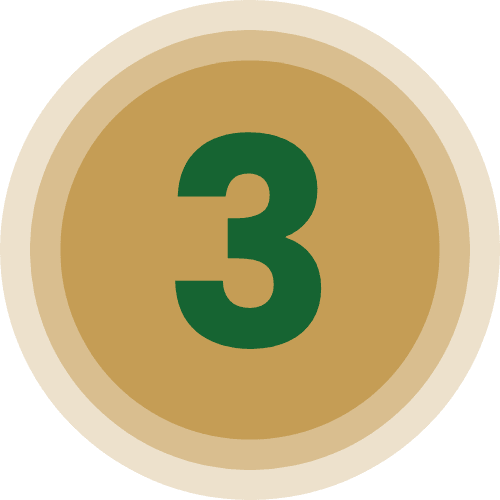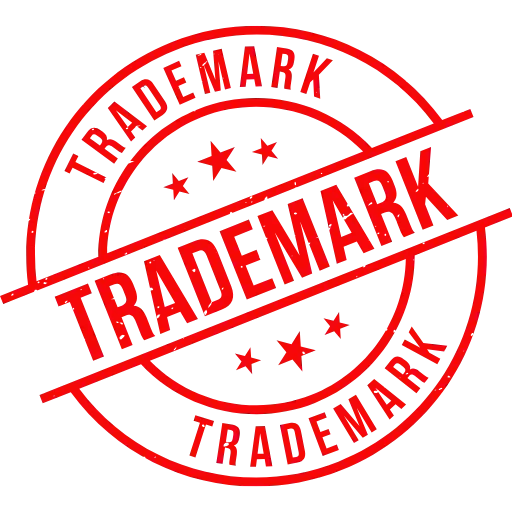Trademark Registration
Worried about the lengthy Trademark Registration process? Taxamicus makes it simple to protect your brand—fast & hassle-free!
- Helped 5,000+ brands secure Trademark rights across India
- Get expert guidance from our Trademark Registration consultants

4270+
Happy Clients

99.8%
Filing Accuracy

14+ yrs
Of Experience

Free Consultancy By Expert
Trademark Registration in India – An Overview
Trademark registration is a legal process that protects your brand name, logo, symbol, or slogan from unauthorized use. By registering your trademark, you gain exclusive rights to use the mark in connection with your goods or services, ensuring your brand identity is legally safeguarded across India. At Taxamicus, we simplify the trademark registration journey—from name search and application filing to handling objections and final approval—so you can focus on building your business while we protect your brand.

Why is Trademark Registration Important?
Trademark registration is crucial for protecting the identity and reputation of your business. Here’s why it matters:
Legal Protection
It gives you exclusive rights to use your brand name, logo, or slogan, and allows you to take legal action against infringement.
Brand Ownership
A registered trademark confirms that your brand belongs to you—not your competitors.
Builds Brand Trust
Customers are more likely to trust and choose businesses with a registered trademark.
Prevents Copying
Trademark registration helps prevent others from using similar names or logos that may confuse your customers.
Supports Business Expansion
Whether franchising, licensing, or going international, a trademark provides solid legal ground for growth.
Asset Value
A trademark is an intangible asset that adds to your company’s value and can be sold, licensed, or franchised.
Who Needs a Trademark Registration?
Businesses
To legally own and protect their brand identity.
Startups
To safeguard their unique name, logo, or slogan from the start.
Creators & Designers
To secure ownership of unique logos or visual identity.
E-commerce Sellers
To avoid brand copying and build customer trust.
Franchise Owners
To maintain consistent brand identity across branches.
Exporters
To protect trademarks in international markets.
Different types of Trademark Registration
Trademark Registration Class
Goods Class (1-34)
Class 1
Chemicals used in industry, science, agriculture (e.g., fertilizers, adhesives).
Class 2
Paints, varnishes, and lacquers (e.g., colorants, printing inks).
Class 3
Cosmetics and cleaning substances (e.g., soaps, perfumes, skincare).
Class 4
Industrial oils, greases, fuels (e.g., motor oils, lubricants).
Class 5
Pharmaceuticals and medical products (e.g., medicines, dietary supplements).
Class 6
Metal products (e.g., building materials, metal pipes, safes).
Class 7
Machines and machine tools (e.g., industrial machines, motors).
Class 8
Hand tools (e.g., knives, forks, pliers).
Class 9
Electrical and scientific apparatus (e.g., computers, software, cameras).
Class 10
Medical apparatus and instruments (e.g., surgical instruments, dental equipment).
Class 11
Lighting, heating, cooking appliances (e.g., light bulbs, air conditioners).
Class 12
Vehicles and transport equipment (e.g., cars, bicycles, boats).
Class 13
Firearms, explosives (e.g., guns, fireworks).
Class 14
Precious metals, jewelry, watches (e.g., rings, necklaces).
Class 15
Musical instruments (e.g., guitars, pianos).
Class 16
Paper, printed materials, office supplies (e.g., stationery, books).
Class 17
Rubber and plastic materials (e.g., insulation, plastic films).
Class 18
Leather goods (e.g., bags, wallets, suitcases).
Class 19
Building materials (e.g., cement, bricks, timber).
Class 20
Furniture, mirrors, picture frames (e.g., beds, chairs, sofas).
Class 21
Household utensils, kitchenware (e.g., cookware, brushes).
Class 22
Ropes, nets, awnings (e.g., tarpaulins, tents).
Class 23
Yarns and threads (e.g., cotton, wool).
Class 24
Textiles, bed and table covers (e.g., curtains, bedspreads).
Class 25
Clothing, footwear, headgear (e.g., shirts, shoes, hats).
Class 26
Lace, ribbons, and embroidery (e.g., buttons, zippers).
Class 27
Carpets, rugs, and mats (e.g., floor coverings, wallpaper).
Class 28
Games, toys, and sporting goods (e.g., board games, gym equipment).
Class 29
Meat, fish, dairy products (e.g., eggs, oils, canned goods).
Class 30
Staple foods (e.g., coffee, tea, bread, cereals).
Class 31
Agricultural products (e.g., fresh fruits, vegetables, seeds).
Class 32
Beverages (e.g., mineral water, fruit drinks, soft drinks).
Class 33
Alcoholic beverages (e.g., wine, beer, spirits).
Class 34
Tobacco and smoking products (e.g., cigars, cigarettes, lighters).
Services Class (35-45)
Class 35
Advertising, business management (e.g., marketing services, office functions).
Class 36
Insurance, financial services (e.g., banking, real estate, investment).
Class 37
Construction, repair, installation (e.g., plumbing, building maintenance).
Class 38
Telecommunications (e.g., internet services, radio broadcasting).
Class 39
Transport, packaging, and storage (e.g., shipping, travel services).
Class 40
Treatment of materials (e.g., recycling, printing, custom manufacturing).
Class 41
Education, entertainment (e.g., training services, sports, cultural events).
Class 42
Scientific and technological services (e.g., software development, research).
Class 43
Food and drink services (e.g., restaurants, catering).
Class 44
Medical, veterinary, and agricultural services (e.g., hospitals, beauty salons).
Class 45
Legal, security, and personal services (e.g., legal consultation, security services).
Benefits of Trademark Registration
Exclusive Legal Rights
Gain exclusive ownership of your brand name, logo, or tagline across India.
Brand Protection
Prevent others from copying or misusing your registered trademark.
Builds Trust & Credibility
A registered trademark enhances your brand’s professional image and customer trust.
Business Expansion Support
A trademark makes it easier to license, franchise, or expand your brand nationally and internationally.
Legal Protection Against Infringement
You can take legal action against parties misusing your mark.
Adds Asset Value to Your Business
A trademark is an intangible asset that can increase your business valuation and brand worth.


Documents Required for FSSAI License and Registration -
Applicant’s Identity Proof
PAN Card, Aadhaar Card, Passport, or Driving License (for individuals or directors/partners).
Mobile number & Email id
Provide Mobile number and Email id of the individual or partner or company
Brand Name / Logo
A clear image or text of the brand name and logo you wish to register with the class.
Signed TM-48 Form
An authorization letter allowing your agent (like Taxamicus) to file the application on your behalf.
Udyam/MSME Certificate (if applicable)
For availing government fee concession (available for small businesses/startups).
Partnership Deed / Incorporation Certificate
For firms, LLPs, or companies—proof of business entity formation.
Step by Step Trademark Registration Process

Trademark Search

Application Filing

Examination & Objection (If Any)

Trademark Registration Certificate
Time and Cost Involved in Trademark Registration
🕒 Time Involved:
Registration Process
The overall registration process takes approximately 6 to 18 months.
No Objection/Opposition
If there are no objections or oppositions, registration can be completed within 6 to 8 months.
Legal protection
Legal protection starts from the date of filing, even before final registration.
Why Delay?
Delays may occur due to objections, oppositions, or backlogs at the Trademark Office.
💰 Cost Involved:
Government Fee
- ₹4,500 per class – For individuals, startups, and MSMEs
- ₹9,000 per class – For companies and other entities
- ₹2,700 – For filing opposition
- Renewal fee – Same as the new application fee (₹4,500 or ₹9,000 per class)
Professional Fees (by Taxamicus)
- ₹1,500 – For handling objections
- ₹3,000 – For opposition, renewal, and hearings
Post Registration Compliance Trademark Registration
Renewal of Trademark
A registered trademark is valid for 10 years from the date of application. To continue enjoying legal protection, it must be renewed before its expiry. If not renewed on time, the trademark can be removed from the registry, resulting in the loss of exclusive rights. Timely renewal ensures uninterrupted brand protection.
Use of Trademark
After registration, it is mandatory to use the trademark actively in commerce. If the trademark is not used for a continuous period of five years, it becomes vulnerable to cancellation for non-use. Therefore, businesses must use their trademark on products, services, or promotional materials to maintain their rights.
Monitoring for Infringement
Trademark owners should consistently monitor the market to detect any unauthorized use or similar marks. If any infringement is identified, prompt legal action—such as sending a cease-and-desist notice—helps protect the brand and enforce ownership rights. Ignoring infringement may weaken the brand’s value and legal standing.
Assignment or Licensing
If a trademark is transferred (assigned) or licensed to another party, the agreement must be recorded with the Trademark Office. Failure to officially record such changes can lead to complications in enforcement or ownership disputes. Proper documentation ensures the legal standing of the new owner or licensee.
Changes to Trademark
Any significant changes to the trademark’s name, design, or logo after registration may require a fresh application. The registered trademark protects only the specific version filed, so modifications without re-registration may leave the new version unprotected. It’s important to update the Trademark Office about such changes.
Oppositions and Third-Party Claims
Even after registration, third parties may challenge the trademark on grounds like prior usage or similarity. Trademark holders must be prepared to defend their mark through legal responses or hearings. A strong defense maintains the trademark’s exclusivity and avoids possible cancellation.
Other Trademark Services

Objection
- Resolve Objections Efficiently
- Detailed Analysis and Response
- End-to-End Assistance

Renewal
- Maintain Brand Protection
- Timely Reminders and Hassle-Free Process
- Extend Legal Ownership


How Taxamicus Helps You Register Your Trademark
Free Brand Name Search
We help you avoid objections by checking for existing trademarks and suggesting the most viable names.
Expert Filing with TM Experts
Our team files your application accurately and swiftly, ensuring all required documents and classes are correctly selected.
Quick Response to Objections
If any objection arises, we draft and submit a strong legal reply to protect your application.
End-to-End Support
From search to certificate, we handle the entire process, keeping you updated throughout.
Affordable & Transparent Pricing
No hidden fees—only professional service with clear pricing and quick turnaround.
Status Monitoring & Timely Alerts
We track your application regularly and notify you instantly if any action is needed—so you never miss a deadline.
FAQs for Trademark Registration
What is a trademark?
A trademark is a unique symbol, name, logo, word, or design that identifies and distinguishes your goods or services from others.
Why should I register a trademark?
Registration gives you legal protection, exclusive usage rights, and helps prevent others from copying your brand.
Is trademark registration mandatory in India?
No, but registering gives you legal rights and nationwide protection for your brand.
How long does a trademark registration last?
A registered trademark is valid for 10 years and can be renewed indefinitely.
Who can apply for a trademark?
Individuals, businesses, partnerships, and startups can all apply for a trademark.
How do I apply for a trademark?
You can apply online through the IP India portal or take the help of a professional for a smoother process.
Can I apply for a trademark myself?
Yes, but it’s recommended to consult an expert to avoid objections or rejections.
How long does it take to get a trademark registered?
It usually takes 6–18 months, depending on objections, oppositions, and the registrar’s process.
What is the government fee for trademark registration?
₹4,500 for individuals/startups and ₹9,000 for companies (per class).
Can I register a logo and name together?
Yes, you can register a wordmark (name), a logo, or both together as a composite mark.
What are trademark classes?
Trademark classes categorize goods and services into 45 different groups. You must file under the relevant class.
How do I find the right class for my trademark?
You can check the IP India class list or use our free class search tool for assistance.
Can one trademark cover multiple classes?
Yes, but you need to file a separate application and pay fees for each class.
How can I check if a trademark is available?
Use the IP India Public Search tool or contact us for a free name search.
What if a similar trademark already exists?
You may receive an objection. In that case, you’ll need to respond with legal justification or modify your mark.
What is a trademark objection?
An objection is raised by the examiner if your mark is similar to an existing one or lacks distinctiveness.
How can I reply to a trademark objection?
A proper legal reply must be filed within 30 days. We can help you draft and submit it.
What is a trademark opposition?
After your mark is advertised in the journal, a third party can file an opposition if they believe it infringes their rights.
How do I renew a trademark?
You can renew a trademark within 6 months before or after expiry by filing a renewal form and paying the fee.
What happens if I forget to renew my trademark?
The trademark gets removed from the register, but it can be restored within 1 year by paying a late renewal fee.
Can I use ™ without registration?
Yes. ™ can be used for an unregistered trademark. Use ® only after it is officially registered.
Can a registered trademark be challenged?
Yes. Anyone can challenge it if they believe it violates their prior rights or is wrongly granted.
Can I trademark a domain name?
Yes, if it uniquely represents your brand and meets the criteria for registration.
Will my Indian trademark be protected internationally?
No. You must apply in each country or use the Madrid Protocol for international protection.
What is the difference between a trademark and a copyright?
A trademark protects brand names/logos; copyright protects original works like books, songs, or software.
